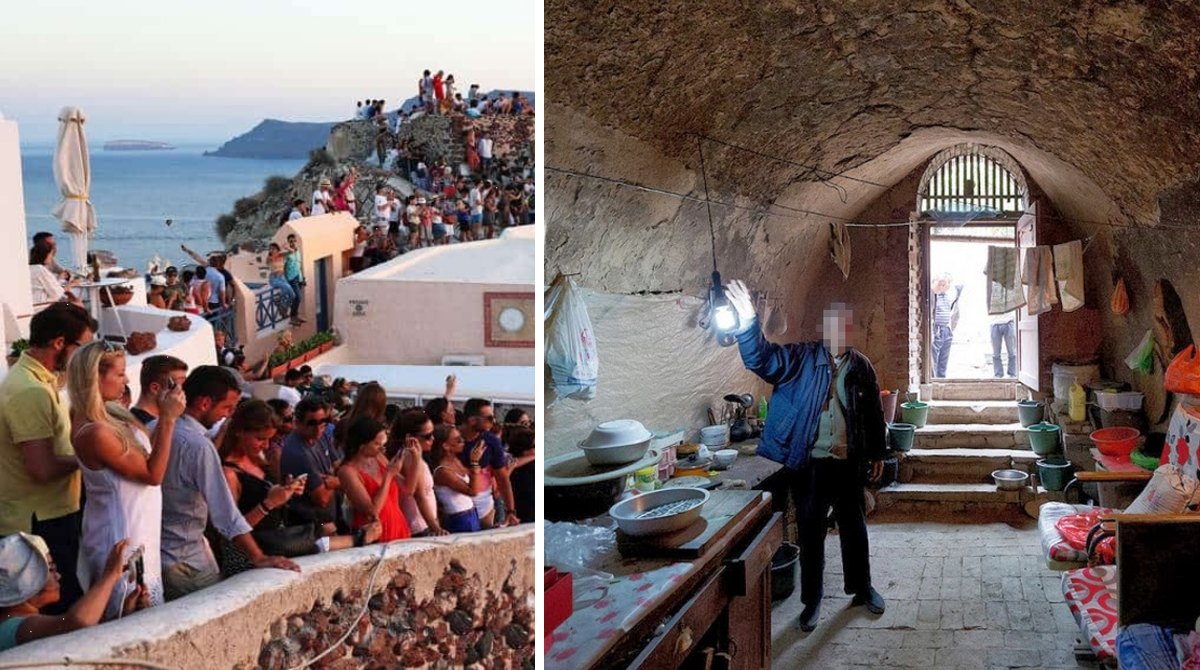The island, which recently entered the list of the most beautiful islands of the Mediterranean, can at any moment raise the slogan: “Tourists, go home!”. We are talking about the Greek island of Santorini, where “short-term” cruise tourists create traffic jams: the crowd on the island is such that it is no longer possible to move through the streets. And “long-term” renters have raised prices so much that residents are forced to live in caves and tents on beaches.
The population of Santorini itself is only 15,000 people, while, according to the Greek press, the island attracts about two million visitors every year, that is, 1,333 tourists for every permanent resident.
As a result, during the season, the capital of the island of Fira is often crowded with people so dense that it is difficult for them to move. Most of the crowds are generated by cruise ship passengers. Moreover, local residents and shop owners in coastal resorts, who often visit liners, complain, that such passengers create a crowd but do not bring in any money. “We love money and we want tourism, but these people you see on cruises are not for us – they don’t spend money here. They have everything on their ships – even souvenir shops – so they just come to wander and block our streets,” complains a typical local small businessman. At the same time, on the busiest days, 18,000 cruise passengers arrive on the island.
However, when tourists spend money, it is not at all easier. Dr. Lauren Siegel, a senior lecturer in the Department of Tourism and Events at the University of Greenwich, has conducted research into the impact of tourism on the island and found that it causes inflation, making goods and services unaffordable for many locals, while bringing in money.
Housing prices are rising, crowding out residents. The same Airbnb service has led to crazy housing prices in Santorini. “€600 a month for a small apartment would be a good price, but it’s half the salary of many people. Some people reached such a point of desperation that they started pitching tents on the beach and also living in caves,” said another resident.

